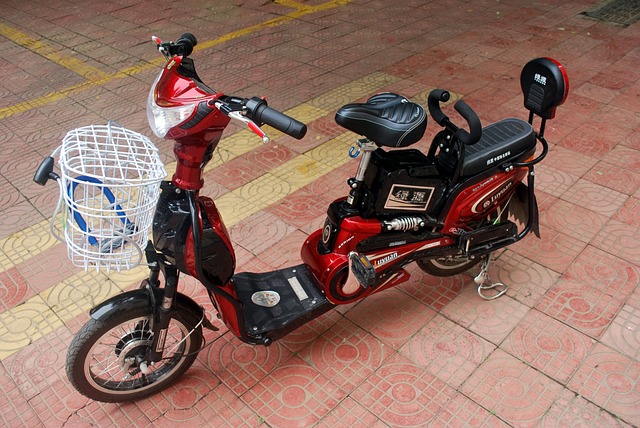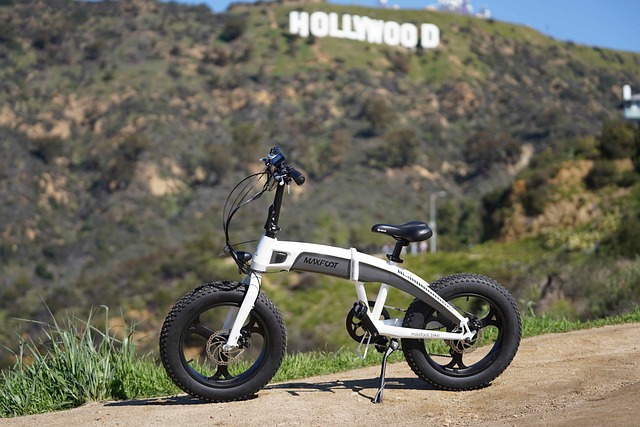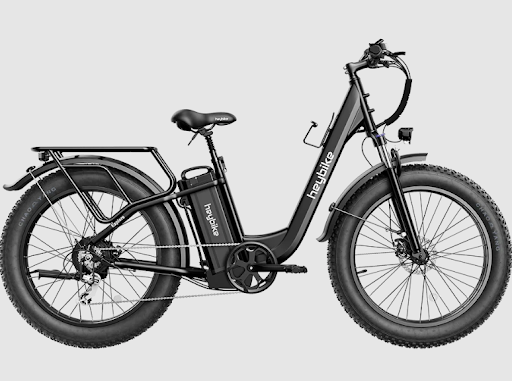This post contains affiliate links, we'll earn compensation if you make a purchase using them at no additional cost to you 😊
For those who are looking to get an e-bike for the first time, one of the first questions that come to their mind is – how much does an electric bike weigh? This question concerns new riders as e-bikes feel like motorbikes compared to regular bikes.
While shaped in similar ways to a standard bike, an electric bike’s weight, typically 40 – 90 lbs, is heavier due to many factors. However, this additional weight gives you the power and acceleration your bike needs to get along. But weight isn’t everything when choosing an e-bike.
In this article, I will cover how heavy different e-bikes are and what makes them so heavy
How Much Does An Electric Bike Weigh?
The weight of an e-bike can vary quite a bit depending on the model, motor, battery size, and components. However, most electric bikes average between 50-55 lbs. This is considerably heavier than traditional bicycles, which often weigh around 30 lbs or less.
The extra weight on an e-bike comes from the motor, battery, and other e-bike-specific parts. However, weight shouldn’t be the only factor when choosing an e-bike. The intended use, power and range needed, and overall feel of the bike matter just as much.
Different Electric Bikes and Their Weight
Many types of e-bikes are suited for different riding styles and purposes. Here’s a quick look at popular e-bike categories and their average weights:

1. Mountain e-bikes – 70-90 lbs
Mountain e-bikes need to be durable and rugged to handle off-road terrain. Beefier frames, wider tires, and larger battery packs add weight. High-end mountain e-bikes with carbon fiber frames can weigh around 50 lbs.
2. Fat-tire – 70-80 lbs
Fat tire e-bikes are similar bikes to mountain ones. These e-bikes live up to their name with extra wide tires to ride over sand or snow. The wide tires and rimmed wheels add considerable heft.
3. Cruiser e-bikes – 60-80 lbs
Cruiser e-bikes have a classic beach cruiser style with comfort and leisurely riding in mind. The steel frame and relaxed geometry add weight compared to performance e-bikes.
4. Commuting e-bike – 50-70 lbs
Commuting e-bikes are practical and designed for everyday riding. Averaging 55 lbs, these are among the lightest e-bikes optimized for easy pedaling and transport.
5. Racing – 40 lbs
Electric racing bikes emphasize aerodynamics and speed. Lightweight frames similar to road bikes and minimal components allow these e-bikes to average around 40 lbs.
6. Folding e-bike – 30-40 lbs
Folding e-bikes compromise on power and battery size to achieve a portable, compact design. The smaller wheels also contribute to a lighter weight between 30-40 lbs overall.

Factors That Affect An Electric Bike’s Weight
The most significant factors that contribute to an electric bike’s weight include:
1. Motor and battery pack
Combined, the motor and battery pack account for around 15-20 lbs of an e-bike’s total weight. More powerful motors and higher-capacity batteries add weight.
2. Sturdier Frame and Components
E-bike frames need to be very robust to handle the torque generated by electric motors. Stronger materials like steel, aluminum alloys, or carbon fiber add to the frame weight.
3. Accessories
Add-ons like cargo racks, fenders, kickstands, bells, lights, and other accessories can tack on a few extra pounds. But many of these are useful for commuting and utility use.
4. Tires
Wider tires and puncture-resistant tires commonly found on mountain, cargo, and fat tire e-bikes can add up to 5 lbs per tire. Standard road bike tires help minimize weight.
Role Of Weight For An Electric Bike
E-bike weight affects handling, acceleration, and overall riding experience. However, the optimal weight largely depends on your riding needs and preferences.
Think about the terrain you’ll tackle and your purposes, like commuting, exercising, hauling cargo, etc. Your goals will determine if you need a lighter or more robust heavier e-bike.

Frequent pedaling and accelerating favors lighter e-bikes around 50 lbs. But for high speeds or rough terrain, a heavier model over 70 lbs may provide stability.
Lighter Or Heavier: Which E-bike Is Better?
A lighter bike is undoubtedly the better choice if you want better mobility and easy handling. But this applies to the standard bikes.
When it comes to e-bikes, they are equipped with heavy electrical components. This adds up an undesired weight to your electric bike automatically. But this additional weight allows your e-bike to travel at a higher speed and control as long as the battery goes on.
That means if you want a lightweight electric bike, you may have to compromise with battery capacity and motor capability.
Unlike lightweight e-bikes, heavy e-bikes contain all the electrical components and battery sizes that are enough to keep you going for a long time. With these exceptional features, an ideal e-bike will weigh around 70-80 lbs. You can also find lightweight bikes weighing 40-50 lbs, but they will also cost you a fortune.
Does The e-bike’s Weight Matter?
The e-bike’s weight is important, depending on how you plan to use it. A lighter e-bike, around 45-55 lbs, is ideal if you frequently pedal and carry the bike a lot. The lighter weight makes accelerating and lifting the e-bike much easier.
However, a heavier e-bike over 60 lbs is recommended to handle the extra load if you plan to carry luggage or kids. For riding over bumpy terrain or uneven ground, a heavier e-bike over 70 lbs performs better thanks to the wider tires and suspension.
Riders focused on speed or long distances would likely prefer a lighter e-bike of 50 lbs to reduce fatigue. On the other hand, heavier e-bikes over 60 lbs provide more stability and control at faster speeds thanks to their robust frames.
So, it’s important to consider where and how you plan to ride when deciding on the e-bike’s weight. Test rides can help find the optimal balance between weight and performance that best suits your individual needs.
Related Read:
- eBike Sales for Black Friday
- Electric Bike Charging While Pedaling
- Remove The Speed Limiter On Electric Scooter
Final Verdict: How Much Does An Electric Bike Weigh
The average weight of an electric bike is 52 lbs, nearly twice that of regular bicycles. But the additional 20-30 lbs comes from the motor, battery, and other e-bike-specific components. These also give e-bikes their power and range.
While a lighter e-bike can accelerate and climb more easily, a heavier e-bike offers more stability and ruggedness. The ideal weight depends on your priorities, like portability, comfort, speed, or off-road use. Test rides can help you find the right balance between features and weight for your needs.
So don’t just focus on the number on the scale. Find an e-bike with the right mix of power, comfort, and handling to match how and where you plan to ride.
FAQs
The average e-bike weighs between 50-55 lbs. Heavy-duty models can go up to 90 lbs, while lighter portable e-bikes can be as little as 30 lbs.
E-bikes around 55 lbs offer a good balance for most riding needs. Go lighter, around 40-50 lbs, if carrying frequently. Choose 70+ lbs models for stability at high speeds or heavy-duty off-road use.
Yes, e-bikes are much heavier, about 15-30 lbs more than a standard bicycle. The electric components, like battery and motor, account for most of the extra weight.
E-bikes need to be built sturdier to handle the extra weight and torque from the electric motor. The battery pack, wider tires, and thicker frames add considerable heft compared to basic bicycles.


